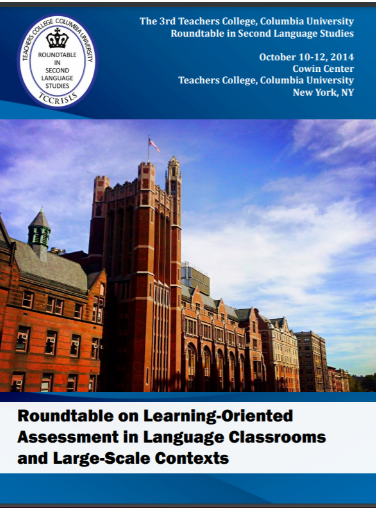Our Mission
The SBLA Lab was established to provide innovative solutions to language assessments. Our goal is to develop language assessments that allow learners to perform in a simulated environment that reflects their real-life second/foreign language use. We also believe that assessments should be an educational experience (i.e., learning-oriented in nature), and prioritize the elicitation and instruction of learners' 21st century competencies.
THE ASSESSMENT APPROACH: SCENARIO-BASED ASSESSMENT (SBA)
Scenario-based assessment (SBA) allows us to assess how language learners use their linguistic and cognitive competencies as they engage in a simulated project to achieve an overarching goal throughout a test scenario. In this way, test-takers explore a topic, interact with simulated peers, and make use of assistance as part of the learning-oriented nature of this type of assessment. We believe that by targeting more complex, integrated, purposeful contexts of language use, we will be able to provide valid, authentic, meaningful measures of second/foreign language (L2) knowledge, skills, and abilities (KSAs).
Because SBA aims to provide an authentic context in which language learners can demonstrate their L2 KSAs realistically, researchers have suggested that SBA should feature the following components: authentic contexts, authentic activities, access to expert or modeled performances, multiple roles, collaborative construction of knowledge, opportunities for learners to reflect, opportunities for learners to demonstrate their knowledge explicitly, scaffolded assistance, and authentic assessment of learning (Banerjee, 2019; Herrington & Oliver, 2000; O'Reilly et al., 2014).
THE DESIGN & VALIDATION APPROACH: THE LEARNING-ORIENTED ASSESSMENT (LOA) FRAMEWORK
Learning-oriented assessment (LOA) refers to an approach to assessment that prioritizes the centrality of L2 processing and L2 learning outcomes, resulting from planned and unplanned assessments, in a variety of learning and assessment contexts (Purpura & Turner, 2014, 2021; Turner & Purpura, 2016). LOA is often associated with assessments embedded within teaching and learning contexts. It has also been associated with scaffolded assistance and learning within assessment contexts. Inferences from LOAs relate to:
-
What L2 knowledge, skills, and abilities (KSAs) learners have displayed in instruction or assessment contexts?
-
How assessment evidence can be used by the learners themselves, teachers, peers, assessors, and computer-mediated assessment programs to evaluate learning goals, and advance L2 processing objectives?
-
How learners develop target-like L2 performance over time?
An LOA approach, therefore, assumes that learning an L2, in whatever context, is an individual, cognitive process, but when situated within collaborative learning and assessment spaces, it also involves a layered set of socio-cognitive and sociocultural processes. Finally, an LOA approach to assessment recognizes the symbiotic relationships among external standards, curriculum, instruction, learning, and assessment, and is concerned with the role that these synergies play in understanding learner performance, engagement, learning processes, and the attainment of learning success.
The Dimensions of the LOA Framework

2014 Teachers College Roundtable on Second Language Studies
Learning-Oriented Assessment in Language Classrooms and Large-Scale Assessment Contexts
Read about LOA, view presentation slides, and watch presentation video recordings.